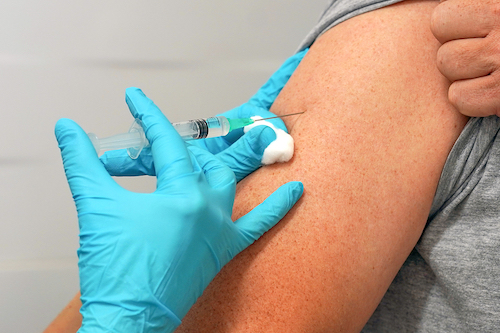 Experts around the world are racing to develop a vaccine for COVID19.
Experts around the world are racing to develop a vaccine for COVID19.
But there is a group of people who are unlikely to sign up: vaccine skeptics.
Vaccine skepticsm has become increasingly widespread, and researchers from Texas Tech University may have found the reason why.
The researchers from the Department of Psychological Sciences argue that vaccine skeptics may think vaccines are risky because they overestimate how likely it is for negative events to occur, especially those that are rare.
“In our study, we found that people who are skeptical toward vaccines are also different in a more fundamental, cognitive way: they mis-estimate scary statistics to a greater degree than non-skeptics. I think this finding is important because it informs how we can try to put things into perspective for the public. Our research suggests that the people most vulnerable to anti-vaccine appeals also happen to process information differently. And the more we understand these differences, the better we can alleviate problems associated with sub-optimal vaccination levels,” Mark LaCour, co-author of the study and a doctoral student in psychological sciences at Texas Tech University told Theravive.
“We found that people who are more skeptical toward vaccines are also less accurate at estimating the relative probabilities of scary, mortality-related events. They also over-estimate the rarer mortality statistics to a greater degree than non-skeptics.”
In undertaking the research, LaCour and his colleague Tyler Davis, an associate professor of experimental psychology and director of the Caprock FMRI Laboratory, surveyed 158 people. The researchers asked questions about perceived dangers of vaccines, feelings of powerlessness, and trust in authorities regarding vaccines to determine levels of vaccine skepticism.
The participants were then asked to estimate the frequency of deaths from 40 different causes like childbirth, animal bites, cancer, fireworks, car accidents and flooding. The researchers found that people who had higher levels of vaccine scepticism weren’t as accurate in their estimation of frequency of deaths. The higher the level of vaccine skepticism, the higher was the overestimation of risk of death from the events.
In a second experiment, participants were also asked to estimate how frequently a positive or negative event might occur. Examples included the birth of triplets, a Willie Nelson concert and the pope visiting the United States. They found that those who had higher levels of vaccine skepticism were more likely to overestimate the occurrence of mortality related events, as opposed to neutral or positive events.
“We think that people who tend to be skeptical toward vaccines also tend to let their emotional reactions toward a subject matter inflate their threat perceptions towards that subject matter. More specifically, they appear to translate their fear response into a higher judgment of probability,” LaCour told Theravive.
LaCour says it’s likely vaccine skeptics have a poor understanding of how probable it is for different events to occur. He argues vaccine skeptics are also more likely to be influenced by horror stories. He gives the example of a child having a seizure following a vaccination. This is extraordinarily rare, yet there are Facebook groups where people discuss such things occurring. Vaccine skeptics might then distort these anecdotes into a trend.
It is also possible, LaCour says, that those who are skeptical of vaccines actively seek out biased information to confirm their already existing beliefs.
As for a potential vaccine for COVID19, LaCour says the best way to ensure high uptake is for public health officials to emphasize how low the probability is that something bad will happen due to the vaccine.
“The probability of this happening, for the vaccines that are currently in use, are vanishingly small… and dwarfed by the probability of contracting the disease if you (or enough people in general) do not vaccinate. Our research shows that this scary, probabilistic information is not processed accurately by vaccine skeptics. So, one strategy to try and maximize uptake would be for communicators to emphasize the huge disparities in probabilities for bad things to happen to you depending on whether you received or don't receive the vaccine.”
Elizabeth Pratt is a medical journalist and producer. Her work has appeared on Healthline, The Huffington Post, Fox News, The Australian Broadcasting Corporation, The Sydney Morning Herald, News.com.au, Escape, The Cusp and Skyscanner. You can read more of her articles here. Or learn more about Elizabeth and contact her via her LinkedIn and Twitter profiles.